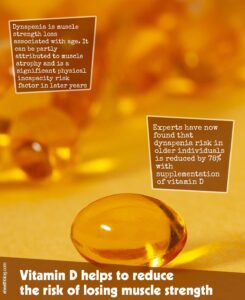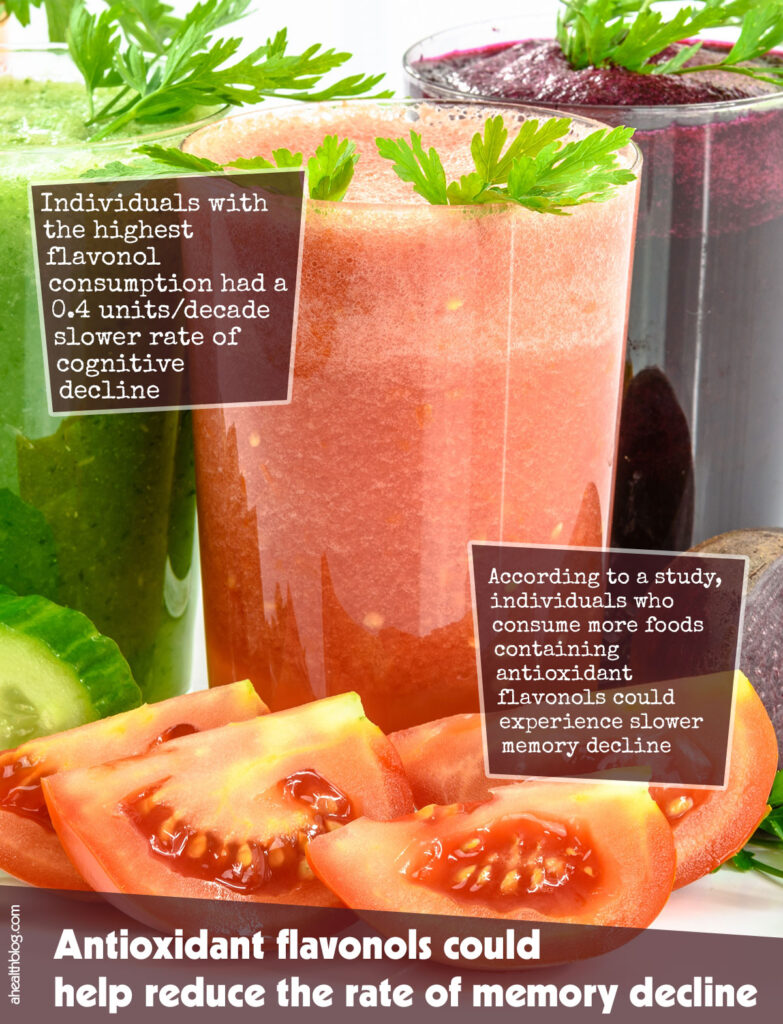According to research, individuals who consume foods rich in antioxidant flavonols found in fruits, vegetables and wine/tea could experience less memory decline.
Research participants involved 961 individuals without dementia aged 81 years on average. A questionnaire about food consumption was filled out annually. Annual memory and cognitive tests also took place which involved remembering word lists and numbers and placing them correctly into order.
Education level, physical activity time spent per day and any time spent engaging in mentally engaging activities (i.e. playing games or reading) were reported and they were followed for an average period of seven years.
Individuals were divided into 5 equal groups according to the amount of flavonols consumed daily in their diets. Though an individual typically consumes 16-20 mg, most participants in this experiment had an average total flavonol consumption of approximately 10 mg each day from their food sources.
The lowest consumption group averaged approximately 5 mg daily while those in the highest consumption group consumed an estimated daily intake of 15 mg; equivalent to approximately one cup of leafy greens.
To assess cognitive decline rates, the study employed a cognition score consisting of 19 different cognitive tests; it ranged from 0.5 for those without thinking issues to 0.2 for mildly cognitively impaired and finally down to -0.5 in cases of Alzheimer’s.
Once other factors that could impact memory decline rates were taken into account – including smoking, sex and age – individuals with the highest flavonol consumption had a 0.4 units/decade slower rate of cognitive decline compared with individuals who consumed less flavonols.
The flavonol class was divided into 4 constituents: isorhamnetin, myricetin, quercetin and kaempferol. For each group of flavonoids there are major food contributors – broccoli, spinach, tea beans and kale for kaempferol; tea apples kale tomatoes quercetin myricetin wine tea myricetin as well as tomato sauce wine olive oil pears for isorhamnetin (Brownstein 2007).
Cognitive scores among individuals consuming the highest levels of kaempferol declined at a rate that was approximately four units/decade slower compared to individuals in the lowest consumption group, and two units/decade slower for quercetin consumption.
Cognitive scores in individuals who had consumed high quantities of myricetin showed slower decline at 0.3 units/decade than those in lower consumption groups; dietary intake of isorhamnetin did not seem to influence overall cognition.
Though this study shows a correlation between higher flavonol consumption and slower cognitive decline rates, this doesn’t prove that their decrease is directly attributable to flavonol intake.
One drawback of the research was that participants self-reported their food consumption frequency, so it may have been inaccurately remembered by them.


